Even though this year has been ridden with intolerance and division, my family has been able to celebrate. I was raised Catholic but am part Jewish by blood. Some people celebrate Christmas religiously and others don’t. While some people celebrate Christmas religiously, most people of Jewish descent choose not to celebrate Christmas because they do not want to follow the religious Christian tradition. That being said, my blended family differs in the fact that we celebrate both Hanukkah and Christmas!
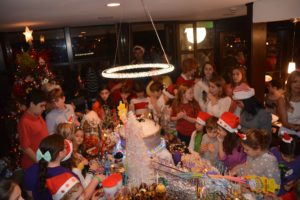
And we have fun!! Each year my family throws a HUGE Christmas party inviting 300 to 400 people. It’s a massive friend, family, and neighborhood event we plan all year long. From food trucks, chocolate martinis, sushi bars, and a themed candy table, there is no lack of merriment. My father’s family embraced Christmas when he was little and got the chance to open small neatly wrapped gifts on Christmas morning. Celebrating Christmas is more of a family tradition rather than a religious one which is why it is so important to him.
He puts his family before everything else. On Christmas morning we rush downstairs to our Christmas tree to find presents neatly stacked in our own piles. Then we finish off Christmas morning with none other than Jewish breakfast: slow-cooked eggs and onions and bagels with smoked salmon and cream cheese. My family’s holiday tradition makes me feel happy that we’re able to celebrate Christmas uniquely without religious differences dampening the experience. In this way, I feel we have truly hit the meaning of Christmas, which is to love, celebrate, share, and exchange
Like my Jewish Christmas tradition, there are many other important cultural traditions that students celebrate.
A sophomore, Vishal Balaji, shared an important tradition he celebrates called Pongal. Vishal is an Indian and a Telugu. He was born in the neighboring state of Tamil Nadu where Tamil is the most spoken language. Because of this, he grew up knowing and celebrating both his traditional and regional festivals. And Pongal is one of those festivals that is celebrated in Tamil Nadu.
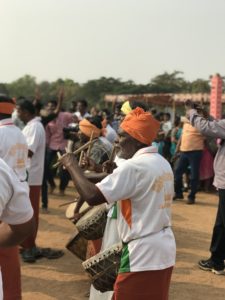
Like Pongal, there is a similar festival called Sankranti. This festival is celebrated all around India and goes by many different names. The Telugu community happens to celebrate Sankranti. So, Vishal grew up celebrating a combination of the two festivals.
Vishal explains that this festival has been celebrated for many years maybe even decades and could be as old Hinduism itself.
“It could be traced back to at least the Chola Dynasty also known as the 3rd century BCE”, explained Balaji.
Vishal describes Pongal as “the harvest festival that is celebrated according to the Tamil solar calendar which is typically around January 14th and it lasts for about four days”. In order the four days are called Bhogi Pandigai, Thai Pongal, the third Maattu Pongal, and Kaanum Pongal.
Vishal gives a small description of each day.
On the first day people celebrate new possessions after discarding their old belongings and come together to light a bonfire in order to burn the discarded belongings. Houses are cleaned, painted and/or decorated to give a festive look” said Vishal.
He then describes the second day, Thai Pongal, which happens to be the main day of the festival.
This day is dedicated to the Hindu and the sun god, Surya and celebrated with the Pongal dish.
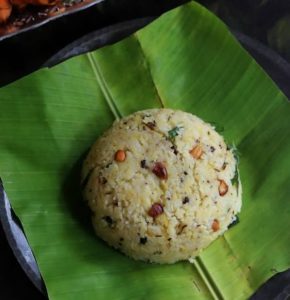
“The Pongal traditionally prepared by boiling milk, in a group setting in a traditional earthen pot in an open space in the view of the sun. When it starts to bubble, freshly harvested rice grains and cane sugar jaggery are added to the pot. As the dish begins to boil and overflow out of the vessel, one or more participants blow a conch called the sanggu while others shout with joy “Pongalo Pongal”! – which translates to “may this rice boil over”.
Day three of Pongal is Maatu Pongal which is celebrated the day after Surya Pongal.
Vishal describes the meaning behind the word Maatu which refers to “cow, bullock, cattle”,
On Mattu Pongal, the cattle are decorated – sometimes with flower garlands or painted horns, they are offered bananas, a special meal, and are worshipped. In his hometown, Coimbatore, there are a herd of cows that are decorated and walked across the city to a temple where the worship takes place.
The fourth day, Kaanum Pongal, sometimes referred to Kanu Pongal marks the end of Pongal festivities for the year. Vishal explains the meaning of the word Kaanum which means “to visit.” This makes a lot of sense because many families hold reunions on this day and communities plan social events to strengthen mutual bonds.
Like Thanksgiving and New Years’, the Pongal festival, is their own version of the new year/ thanksgiving celebration.
By sharing this tradition, Vishal hopes to show others the comparatively hidden culture of South India that is often overshadowed by the mainstream traditions of North India.
In addition to Pongal tradition, Ghaith Aleithawe, a Junior, celebrates both Christian and Muslim holidays. One important Islamic holiday they celebrate is known as Eid where they wake up early and pray in a congregation with others and give each other gifts and then later have a social gathering.
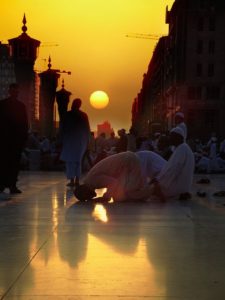
The significance of Eid is that it brings Ghaith and his family together and allows them to interact and enjoy each other’s presence.
From sharing this tradition Ghaith hopes that others will endure and be welcoming to different opinions to better understand different cultures.
Whether its painting cattle, decorating for a party or making ornaments, every tradition usually involves decorations!
In relation to the decorated cattle from Pongal, Red Poe, a senior celebrates his Christmas by making ornaments. Each year, he celebrates Christmas for a week with different get-togethers.
“When I was young, we would give handmade gifts from knitted blankets to eggshell ornaments. We would start planning these in June so that we would not be rushed to make them. My aunt and Memaw also make caramel popcorn, chocolate pretzels, and chocolate covered peanut butter crackers to give to teachers and friends which I would help with when I was around or lived with my grandparents.”

Red then explained how handmade gifts became his favorite and he enjoyed making them. However, it isn’t just the gift that’s important to him, but rather the thought put into it.
“Anyone can make a handmade gift, and even on a very tight budget, we found ways to give a meaningful present that our family would use. I am sharing this with my brother’s step kids this year while staying with them, so they learn the importance to take time out of their day for others.”
Red explained that this tradition helped him want to give to people in ways they couldn’t get in any other way. It taught him to remember those close to him and to pay attention to the little things. It also inspired his love for crafting a whole lot more.
These traditions including mine were important for me to share especially because our country is so divided today. With a little respect for each other’s differences, new traditions can shine through.
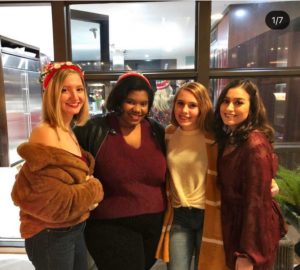

What a fantastic article about tradition, respect for others beliefs and just the love we can share throughout the holidays !